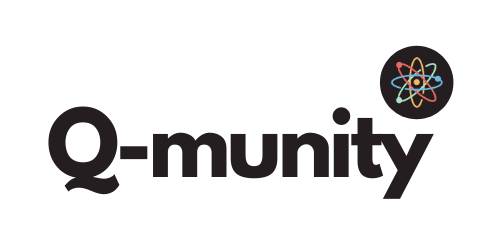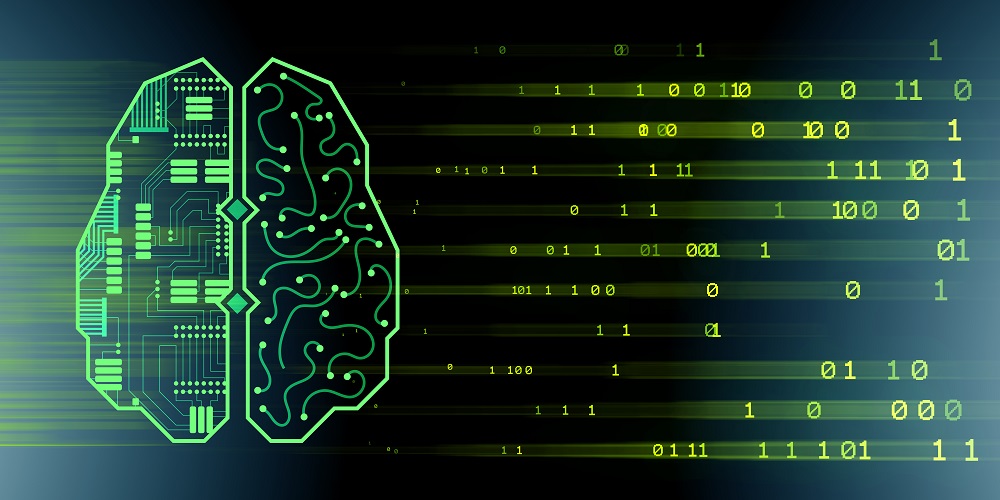Quantum computing, a field that represents the crossroads between quantum mechanics and computer science, is a rising (if not already prominent) area in the data science industry. Many students discover their own blossoming interest in quantum computing, yet shy away from jumping directly in due to a lack of a starting point.
This struggle, in itself, is understandable. A simple search on the internet for “how to learn quantum computing” yields well over 70 million results, and a search for “getting started in quantum computing” is no better, yielding a mind-boggling 180 million.
Here at Q-munity, we have dug into those numerous online resources and selected some of our personal favorites.
Top Quantum Books
Books are the classic go-to for information, and have been for thousands of years. While there has been the occasional “Quantum Computing for Dummies”, there are also plenty of other textbooks out there that cover numerous topics, from quantum mechanics to linear algebra.
- Quantum Computing for Everyone by Chris Bernhardt
Author Chris Bernhardt’s book is quite friendly, incorporating familiar examples from the classroom. The textbook assumes all individuals have little to no experience in quantum computing-related topics outside of standard high school math and, thus, moves at a reasonable pace. Topics covered include qubits, entanglements, basic quantum gates and logic, and (a touch of) algorithms. Furthermore, throughout the book, he remains conscious of the parallels (and, more often, intersections) between quantum computing and classical computing, giving readers a complete picture of the fundamentals as a whole.
- Computing With Quantum Cats: From Colossus to Qubits by John Gribbin
John Gribbin takes a slightly different approach to quantum computing, centering his book on historical perspectives. He does rather well in adopting a story-like manner and manages to avoid the pitfalls of turning into a technical paper. While, granted, the book itself is on the outdated side of things, having been published in 2013, it is wonderfully readable and provides a solid overview of the conceptual topics of quantum computing. Gribbin is also the author of other quantum physics-related books, including “In Search of Schrodinger’s Cat”. - Dancing With Qubits: How Quantum Computing Works and How It Can Change the World by Robert S. Sutor
Dancing With Qubits veers slightly more on the textbook-based side. Similar to Bernhardt’s “Fundamentals of Quantum Computing”, it initially draws heavily on the difference between quantum computing and classical computing before moving on to discuss other fundamentals, including superposition, circuits, and algorithms. What makes Robert S. Sutor’s book unique is his incorporation of dives into the how of quantum computing tools and hardware (that is, the engineering prospects underlying it), thereby truly providing a comprehensive view of both the theoretical, mathematical, and physical aspects of quantum computing.
Furthermore, if you are a high school or undergraduate student, several researchers at the Fermilab National Accelerator Laboratory have written a textbook, called “Quantum Computing as a High School Module”, with the demographic of its primary audience in mind.
As can be noted, several of these books work from the ground up. Unfortunately, some of the subject specificity is lost in the wake of covering a wide range of material. This can be remedied through an investigation of other available resources, much of which, in the modern world, is accessible through a variety of mediums, including videos, lectures, and practice problems.
Favorite Math Resources
Few will jump into quantum computing without some inkling of what they are getting into. The following linear algebra and mathematics resources have been used by numerous individuals to grasp the concepts of linear algebra, a key component of quantum computing processes. Using the following resources will be exceedingly helpful in establishing a complete toolset.
- Linear Algebra for Everyone by Gilbert Strang
As the name implies, “Linear Algebra for Everyone” is an introductory textbook to linear algebra, covering matrices, linear combinations, orthogonality, and eigenvalues. The author, Gilbert Strang, is a professor of mathematics at the Massachusetts Institute of Technology and a graduate of MIT and former Rhodes Scholar (Oxford). Linear algebra is foundational to representing the state of qubits and, thus, is critical to being able to perform calculations. - Khan Academy
Khan Academy has been revered for its ability to connect with a diversity of age groups, experience levels, and backgrounds via its learning platform. Through a series of free videos and exercises, individuals can explore linear algebra-specific or quantum physics-specific areas. However, it is worth noting that no quantum computing module has yet been independently developed. - 3Blue1Brown Linear Algebra Series
The 3Blue1Brown video series, covering topics such as calculus, physics, and linear algebra, is a valuable resource composed largely of video tutorials. The videos are structured less like a course and more so a collection of helpful tips and methods for solving problems, and the explanations themselves are well put together and quite understandable. The layout allows for additional flexibility in both pace of and strategy for learning.
Quantum Computing Lecture Materials
Courses, including self-paced ones, are helpful in providing some degree of infrastructure to your progression in learning about quantum computing. Here are three of our favorite resources (some of which are a part of larger databases that could be an open door for so many other curiosities) for online learning!
- Quantum Quest
Quantum Quest is an annual quantum computing course aimed primarily at high school students (making it the perfect starting point for anyone interested in the basics). The online course covers both quantum bits and algorithms, providing course materials and practice, as well as helpful feedback from experienced instructors, that guide your journey through quantum computing. The web class is a joint effort between the University of Amsterdam and QuSoft, with the 2021 program beginning on November 1. They have also included lecture notes from prior years. - EdX: TUDelft Quantum 1010: Quantum Computing and Quantum Internet
EdX is rather well known for its variety of affordable courses that cross over a broad range of subjects, including quantum computing. This course, hosted by the Delft University of Technology (DelftX), is an opportunity for professional certifications at a decent price. The program itself is divided into two main components, one of which focuses on the hardware (physical) components of quantum computers and another on the implementations of algorithms and protocols (as well as quantum error-correction) for quantum computers.
If you’re looking for more advanced materials, MIT OpenCourseWare - Quantum Computing may be the perfect resource. In 2001, MIT announced the MIT OpenCourseWare program, effectively putting educational resources online for free as an option for any who chose to utilize them. OpenCourseWare has materials in quantum computing, incorporating lecture notes, assignments (along with their solutions), and exams into a lesson structure. However, note that these materials often assume prior knowledge in quantum computing (as this is a graduate level course).
Conclusion
Of course, there is absolutely no telling where in the world quantum computing will head over the next few decades (or, if all goes well, next few centuries). Thus, as with any field, going into quantum computing will include a constant drive to learn, apply, and grow. In the modern world, with the high connectivity the internet offers (despite how it can, occasionally, be on the overwhelming side), it is all a matter of finding and making the most of those resources.







.jpeg)




